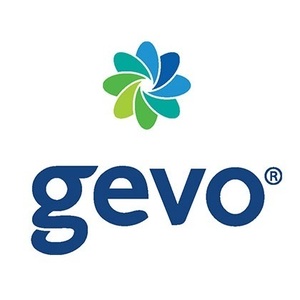Gevo: Sweden and Norway target increased use of SAF

September 21, 2020
BY Gevo Inc.
Gevo Inc. welcomed two announcements from the Scandinavian region regarding sustainable aviation fuel (SAF).
As part of Sweden’s target to be fossil-free by 2040, the Swedish Government announced on Sept. 11 its intention to introduce a greenhouse gas reduction mandate for aviation fuel. The reduction level is expected to be 0.8 percent in 2021 and gradually increase to 27 percent by 2030, with most of the savings expected to come from the use of SAF.
Advertisement
In addition to Sweden’s announcement, Norway announced earlier this year to introduce a 0.5 percent biofuel blending mandate. Norway’s ultimate target is for a 30 percent share of biofuels in the aviation sector by 2030
“These announcements in Scandinavia further highlight the mega-trend around the world to de-carbonize the transportation industry in every way possible. We are always elated to hear of these positive announcements to support the reduction of Greenhouse gases,” stated Patrick R. Gruber, CEO of Gevo. “Gevo’s mission is to produce transportation fuels that lower greenhouse emissions. Gevo’s SAF product is approved for use in commerce and has already been used to power numerous commercial flights. Gevo looks forward to increasing its production capabilities for SAF to help countries like Sweden and Norway in the battle to reduce Greenhouse gas emissions.”
For every gallon of SAF produced, Gevo also produces approximately 10 pounds of protein that goes into the food supply chain and can sequester up to 2 pounds of carbon dioxide as carbon into the soil, making it one of the only renewable jet fuel producers to produce both food and fuel while sequestering carbon dioxide and lowering the GHG emissions as compared to traditional fossil-based jet fuel. In addition to adding food back into the food chain, Gevo will also be more transparent with its sustainability practices by utilizing blockchain technology to track its sustainable agriculture efforts.
Advertisement
In April 2016, ASTM International completed its process of approving a revision of ASTM D7566 (Standard Specification for Aviation Turbine Fuel Containing Synthesized Hydrocarbons) to include alcohol to jet synthetic paraffinic kerosene derived from renewable isobutanol. This allows Gevo’s SAF to be used as a blending component in standard Jet A-1 fuel for commercial airline use in the U.S. and around the globe.
Related Stories
While final IRS guidance is still pending, the foundation of the 45Z program is well defined. Clean fuel producers should no longer be waiting; they can now move forward with critical planning and preparation, according to EcoEngineers.
The IRS on July 21 published a notice announcing the 2025 calendar-year inflation adjustment factor for the Section 45Z clen fuel production credit. The resulting adjustment boosts maximum the value of the credit by approximately 6%.
The U.S. Senate on July 23 voted 48 to 47 to confirm the appointment of Aaron Szabo to serve as assistant administrator of the U.S. EPA’s Office of Air and Radiation. Biofuel groups are congratulating him on his appointment.
U.S. Secretary of Agriculture Brooke L. Rollins today announced the reorganization of the USDA, refocusing its core operations to better align with its founding mission of supporting American farming, ranching, and forestry.
The U.S. Department of Energy’s Office of Energy Efficiency and Renewable Energy is soliciting public comments on a preliminary plan for determining provisional emissions rates (PER) for the purposes of the 45Z clean fuel production credit.
Upcoming Events










